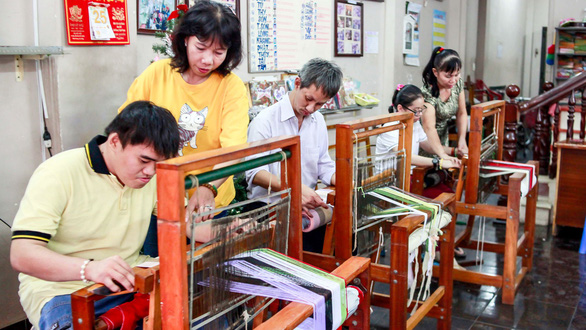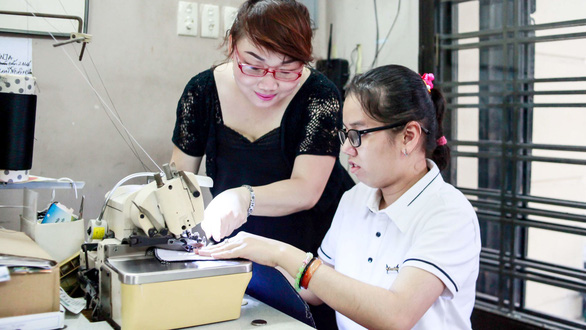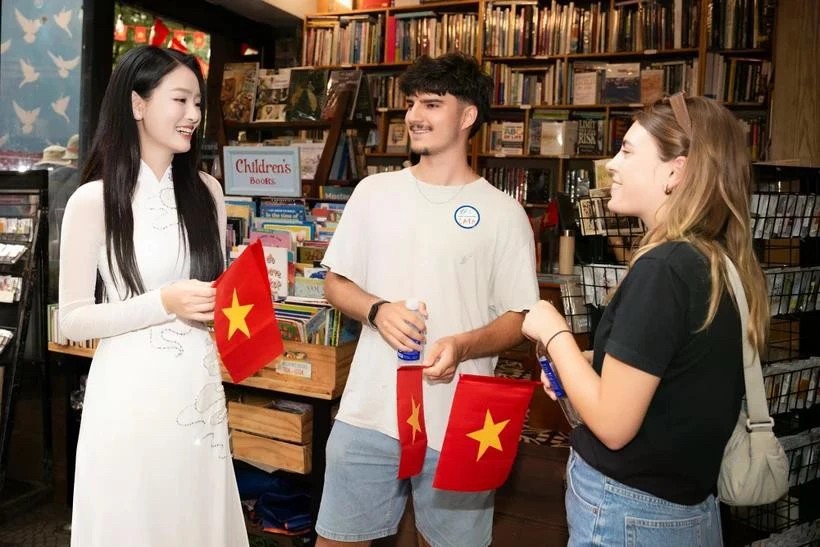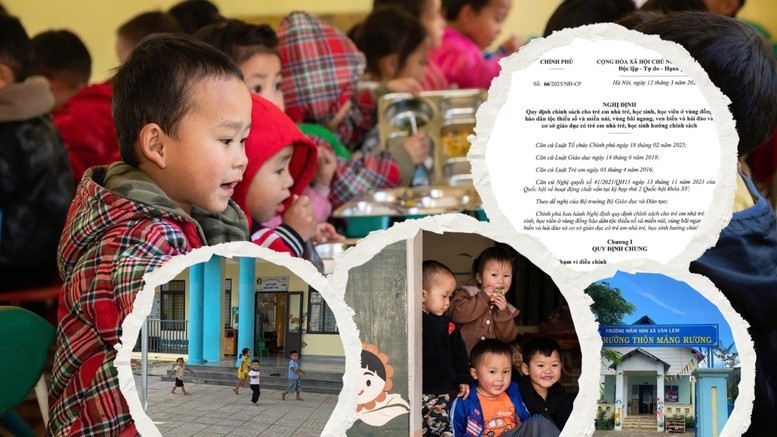Weaving a new life: Saigonese women offer free sewing lessons to mentally impaired
Three women in Ho Chi Minh City have spent more than a decade helping the mentally disabled along the path to self-sufficiency.

Ho Thi Kim Thoa (right) and Nguyen Thi Thanh Thuy, two of the three women who teach people with disabilities, show learners how to use looms at a rented building in Ho Chi Minh City, Vietnam. Photo: Tuoi Tre
Ho Thi Kim Thoa, Nguyen Thi Thanh Thuy, and Nguyen Thi Thuy Hoa provide meals and sewing classes to the 18 mentally impaired ‘students’ at their non-profit textile factory in the city’s Go Vap District.
The factory, with its faded sign and rusted gate, might not be much to look out from the outside, but inside the three-story building is a group of people beyond thankful to the facility’s owner for keeping the rent low enough to help facilitate their mission.
The money they do need to keep the lights on comes from selling woven cloth and other textile products produced by the mentally disabled residents happily working inside – each grateful for the opportunity to learn a new skill they can use to provide for themselves.
The students are all mentally disabled adults over 18 year old who were brought to the factory by low-income families without the means to pay their education, or who came to the facility after being orphaned or disowned by their parents.
Mental retardation, down syndrome, and cerebral palsy are just a few of the conditions faced by the students.

Nguyen Thi Thuy Hoa teaches a disabled girl to sew in Ho Chi Minh City, Vietnam. Photo: Tuoi Tre
The oldest of them is a 40-year-old man with learning disability who lives at the factory. Younger students with families are brought to the building by their parents each morning and are picked up in the late afternoon.
Hoa, the facility manager, said she first began working with disabled children after representatives from the Japanese nonprofit NPO V-HEART proposed the idea after observing her occupational therapy class.
When the organization left Vietnam in 2007, it asked Hoa to continue caring for the children and provided her with VND3.3 million (US$142) each month in order to pay rent.
“I never thought I’d be doing this job ten years later,” Hoa said, adding that she once declined a well-paid job at an international school because she was so inspired by NPO V-HEART’s dedication to helping the less fortunate.
Over the past decade, she has built the factory into a loving home for the students.
She works with local eateries to buy food for each member of the group at discounted prices and makes sure everyone is well-fed and cared for.
VNF/TTO
Recommended
 National
National
Vietnam News Today (May 12): Party General Secretary Meets With Russian Experts, Intellectuals
 National
National
Vietnam News Today (May 11): Vietnam, Austria to Boost Cooperation in High-Tech Development, Innovation
 National
National
Vietnam News Today (May 10): Vietnamese Peacekeepers Honored with UN Medal in South Sudan
 National
National
Vietnam News Today (May 9): Vietnam Ready to Work With Russia to Elevate Relations
Popular article
 National
National
Vietnam News Today (May 8): Vietnam Remains Committed to UNCLOS
 National
National
Vietnam News Today (May 7): Vietnam Hosts Over 7.67 Million International Visitors in First 4 Months
 National
National
Vietnam News Today (May 6): Party Leader To Lam Meets Vietnamese Expatriates in Kazakhstan
 National
National



